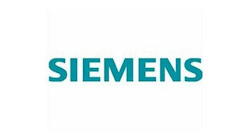On Jan. 15, Siemens announced UMass Dartmouth student Amir Ehsani Zonouz has won the first Mobility IDEA (Improving Design and Engineering for All) Contest, an initiative to find innovative ideas to help solve five of the toughest challenges facing the traffic industry.
Zonouz proposed using quadcopters, a type of small-scale drone, that find free parking spots, determine the shortest path to that spot, and help guide drivers to the designated space either by the driver following the drone to the spot via a mobile app or directly through a car’s communication system. The technology would also have the ability to utilize infrared and thermal cameras to fly at night and help monitor for heatstroke conditions.
Siemens will bring together its top research and development experts to hold an innovation workshop for contest winner Ehsani Zonouz to produce a fully developed prototype of the parking drone technology.
The second place idea was submitted by Clemson University student Sakib Khan for technology that allows for safe pedestrian crossings and third place submitted by Technical University Munich student Sasan Amini on self-parking autonomous vehicles. All winning ideas were submitted by university-level students.
As part of the contest, Siemens will present Clemson University with a $50,000 in-kind software grant for achieving the highest level of submissions per university to help train future engineers. Siemens will also reward the additional top two ranking universities by number of submissions, Anadolu University in Turkey and India’s National Institute of Design, with traffic control software grants worth $50,000.
“This contest brought in a wealth of interesting, innovative, and forward-thinking ideas to help solve our greatest traffic challenges. But, with thirty percent of downtown traffic created by people looking for parking spaces, the judges found Zonouz’s idea to utilize drones to monitor and identify parking spots the most innovative and potentially impactful idea in this contest,” said Ben Collar, head of U.S. Research & Development for Siemens Road and City Mobility. “Having all three winners of this first contest of its kind at Siemens come from university level only further proves the importance of developing the great minds of tomorrow to help solve our most pressing challenges.”
Over 385 participants submitted 180 ideas for the contest, with the greatest number of submissions coming from Turkey and the United States. Using the IDEA Contest website, powered by Mindjet’s SpigitEngage platform, members of the general public, including university students, were asked to submit ideas for one of five scenarios that address a specific challenge faced by the traffic industry. The contest scenarios were:
- Connected Everything: How can you leverage the growth of "connected" technologies to improve the transportation experience?
- Disaster Response and Resilience: How can advanced traffic management help mitigate the impact of a disaster or extreme weather event?
- Green Mobility: What traffic technologies can best improve your city's CO2 footprint?
- Downtown Growth: How can intelligent traffic technologies manage the growing population in downtown areas?
- Parking Nightmare: With an average of 30 percent of downtown traffic attributed to people looking for parking, what technologies can increase parking availability and get users off of the road quickly?

